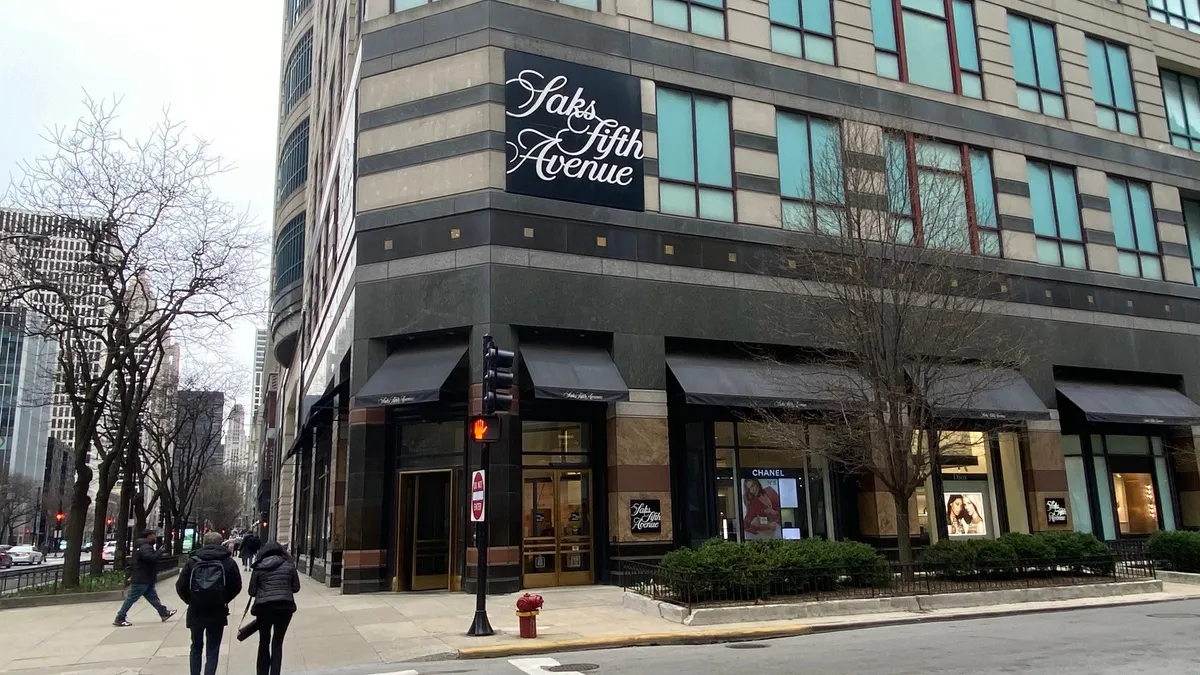The retail sector may or may not be in a funk, but it’s certainly in a time of flux. These days, retailers are buffeted by pressures from consumers, a slow-to-revive economy , cyber-security issues, and rapidly evolving technology.
Retail CEOs must be many things to the companies they lead: They are held responsible to their employees, their shareholders, and their customers.
When a recent family dispute led to the firing of Market Basket’s CEO Arthur T. Demoulas in June, and replaced him with two co-CEOs from outside the family, workers of the Boston-based grocery-store chain rebelled. Any CEOs of most retailers would no doubt welcome that level of company loyalty.
In any case, the challenging retail atmosphere has contributed to the lack of executive leadership for many retail companies.
Some retailers have quickly found replacements. Apparel retailer Express Inc. CEO Michael Weiss, for example, is stepping down effective Jan. 30, to be replaced by the company’s merchandising chief, David Kornberg, who had been with the company since 1999. And Tiffany & Co. just announced that CEO Michael J. Kowalski will step down March 31, 2015, and company president Frederic Cumenal will succeed him.
Here are a few still searching:
Target Corp.
In May, chairman and CEO Gregg Steinhafel abruptly left the retailer after moving up its ranks for 35 years. The instigating factor was likely the massive data breach that hit the retailer during last year’s holiday rush, but there were contributing factors as well.
Target’s culture has been viewed as overly insular and stifling innovation. CFO John Mulligan has taken over CEO duties, but is unlikely to move into the position permanently. In a break from tradition, the retailer of late has been turning to outside the company to beef ups its tech leadership. Look for a CEO to likewise come from somewhere else.
L.L. Bean
The iconic Maine retailer is privately owned, and a quiet success story amid many tales of turmoil in the industry. In keeping with its stability, CEO Chris McCormick announced his 2016 departure in May in order to give the company time to find a suitable replacement.
During his 10 years at the helm, McCormick, the first non-family CEO, led a transformation from a outdoorsy-preppy, catalog-based operation to a multi-channel retailer that is financially healthy. The retailer saw $1.5 billion in 2013 sales last year, and announced in the spring a $100 million investment into improvements in e-commerce and other retail operations. With plenty of time to decide, there’s been little speculation about who will replace McCormick.
American Apparel
With the ouster of Dov Charney, its founder and CEO in June, American Apparel has sparked a summer of drama that continues to dog the company. Allan Mayer, who was integral to Charney’s departure, is acting as CEO now, but his long-term tenure there is far from certain. Many decisions about Charney’s future with the company and possible leadership changes could be decided in August, when an investigation into his conduct while at the top is concluded.
American Eagle Outfitters
Another surprise CEO ouster happened in April, when American Eagle Outfitters CEO Robert Hanson left amid controversy about changes he was attempting at the teen apparel retailer. Like Robert Johnson at J.C. Penney, Hanson was brought on to be bold and different, but his ideas weren’t palatable to directors who turned out to be more comfortable with many elements of the status quo. That has led to speculation that the retailer will be overly resistant to change, a problem that is hardly an enticement to most CEO candidates. Chairman of the board Jay Schottenstein is CEO, but only for the interim.
Abercrombie & Fitch
Abercrombie & Fitch is not officially in search of a CEO, but there has been pressure for a long time now for Mike Jeffries to step down, and many observers believe his departure is imminent. Jeffries last year made some ugly comments, including that the retailer's idea of catering to its customers was to be exclusive to only “cool kids.”
Jeffries has been credited with Abercrombie and Fitch’s rise over several years, but now, not surprisingly, is being blamed for its current struggles.The Columbus-based retailer has tapped Christos Angelides, who has been with British apparel and home goods company Next for 28 years, to be president starting in October. Observers say Angelides is a likely successor to Jeffries.
Dollar General
Like L.L. Bean, Dollar General is getting plenty of notice from its CEO Rick Dreiling, who said in June that he will retire next year, or whenever a successor is found. In his six years as CEO, Dreiling has led the discount retailer in growth. One of the immediate major consequences of Dreiling’s announcement was to put in doubt any merger with rival Family Dollar, an idea that has been pushed by activist investor Carl Icahn.
J.C. Penney
J.C. Penney has been struggling with the idea of change, bringing in former Apple retail guru Ron Johnson only to see him leave 17 months later when those changes were deemed too drastic. At that time, in late 2013, the retailer brought back Mike Ullman, an appointment that was supposed to be temporary. Although the retailer’s fortunes have become brighter since Ullman’s return, his departure two years ago was seen as necessary for the company in the long term.
Ullman has pointedly said he is not an “interim CEO,” and certainly his temporary appointment could last quite a while if the retailer can't find anyone to replace him. Home Shopping Network CEO Mindy Grossman reportedly recently turned down an offer to take the position.
Bon-Ton Stores
The announcement that Bon-Ton Stores CEO Brendan L. Hoffman would leave next winter was a surprise to the retailer. Hoffman is credited with smoothing out changes the retailer had made to bring on young shoppers, making them more palatable to its older customer base. He also oversaw e-commerce growth and improved supply chain management.
Hoffman has said his commute from New York to the retailer’s headquarters in Milwaukee is the driving reason, and many observers say he will likely end up at another major retailer (perhaps one on this list) elsewhere.
Bebe Stores Inc.
Bebe Stores Inc. announced the departure of CEO Steve Birkhold less than a year after he was named CEO, and about a month after the struggling retailer said it was looking for a buyer. Jim Wiggett, who is the CEO of consultancy Jackson Hole Group, has been acting as CEO until the company can find, presumably, a buyer, a CEO, or both.
Would you like to see more retail news like this in your inbox on a daily basis? Subscribe to our Retail Dive email newsletter! You may also want to read Retail Dive's look at the fickle relationship between bloggers and retailers.






















